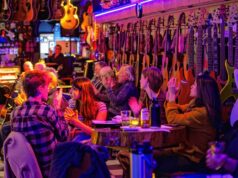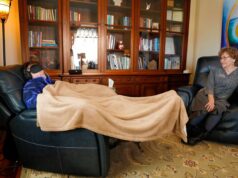
With campuses closed and classrooms empty, teachers are applying long-distance work-arounds to complete their spring courses, gathering their students in Zoom rooms and juggling assignments on Moodle. Teachers of acting, directing, and other hands-on theater skills face the same challenge, and then some. Forget “intimacy training” — how can you do scene work when your actors have only screens to touch?
Last week, as classes resumed online, I asked (via email) to a number of college and high school theater teachers to find out how they’re bridging the social distance. In the responses I received, there was ample proof that necessity is indeed invention’s mom. Teachers are tweaking, bending and in some cases trashing their original lesson plans to fashion creative substitutes.
Zooming in on alternatives
Gina Kaufmann is exploiting the special features of Zoom with her UMass acting students. “With each person in an individual Hollywood Square,” she conducts physical and vocal warmups, “during which we can all see one another but hear only me and themself,” she said.  “We use the Break-Out Rooms feature to hold scene rehearsals with pairs of students. I’m able to go from room to room, observe rehearsals and give observations and encouragement.”
“We use the Break-Out Rooms feature to hold scene rehearsals with pairs of students. I’m able to go from room to room, observe rehearsals and give observations and encouragement.”
Some of her students are now as far away as India, with scene partners here in Massachusetts, but the distance is working in sometimes interesting ways. “Rather than just sitting in front of their computers, they move about, crossing in and out of camera at times.” In one scene, she recalled, “when one character handed another character a beer, the first actor passed the bottle out of one side of the screen. The second actor reached out of their screen, and when their hand reappeared, there was a beer in it.”
 In Ron Bashford’s acting class at Amherst College, the current situation “gives us the chance to do very close reading of play texts, since we cannot explore the physical side in the same way,” he told me. “We have a bit more time to dig deeper into language, sub-text, and psychological aspects of character and relationship.”
In Ron Bashford’s acting class at Amherst College, the current situation “gives us the chance to do very close reading of play texts, since we cannot explore the physical side in the same way,” he told me. “We have a bit more time to dig deeper into language, sub-text, and psychological aspects of character and relationship.”
Scene work hasn’t entirely gone out the window. Instead of the short one-acts originally planned, students will be doing radio plays, gathering remotely around the virtual studio microphone. Work on monologues is being repurposed into coaching on how to prepare for an audition video.
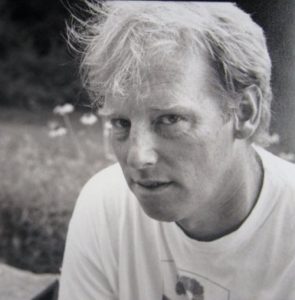 Phil O’Donoghue told me he’d been planning to fully stage a series of ten-minute plays at Springfield Technical Community College. Instead, his cast will record three short plays that don’t involve action — “two that feature telephone conversations, the third about an analysis session.” Echoing many other teachers newly navigating these waters, he said, “It’s a whole new world!”
Phil O’Donoghue told me he’d been planning to fully stage a series of ten-minute plays at Springfield Technical Community College. Instead, his cast will record three short plays that don’t involve action — “two that feature telephone conversations, the third about an analysis session.” Echoing many other teachers newly navigating these waters, he said, “It’s a whole new world!”
Drastically different directions
Michael Ofori has informally dubbed his acting class at Mount Holyoke College Quaracting I. “It was only appropriate,” he told me. He can’t host live Zoom classes because his students are now scattered in time zones around the world, 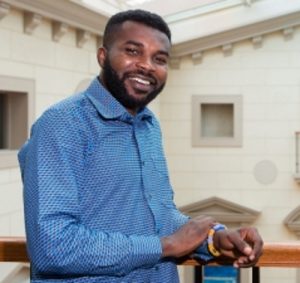 so “I’ve had to put a lot of emphasis on individual work.” Each week, students send him videos of monologues they’re working on. In place of scene work with partners, “they’re each analyzing a character from a scene of a play,” culminating in “a fun video, telling us the story of the scene from the perspective of their character .”
so “I’ve had to put a lot of emphasis on individual work.” Each week, students send him videos of monologues they’re working on. In place of scene work with partners, “they’re each analyzing a character from a scene of a play,” culminating in “a fun video, telling us the story of the scene from the perspective of their character .”
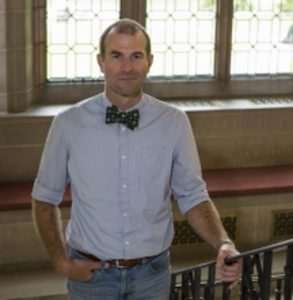 Noah Tuleja’s lesson plan at Mount Holyoke is likewise “drastically different from the original,” he said. His students are being assigned to explore, in print or video, the work of boundary-breaking theater practitioners. (Last week they looked at the Wooster Group and Michael Chekhov’s gestural approach to physical theater.) Then they submit a short response to the work they’re studying, with an emphasis on creativity: Tuleja’s suggestions range from a tweet or a haiku to “a pitch for or against the work being included in a hypothetical season.”
Noah Tuleja’s lesson plan at Mount Holyoke is likewise “drastically different from the original,” he said. His students are being assigned to explore, in print or video, the work of boundary-breaking theater practitioners. (Last week they looked at the Wooster Group and Michael Chekhov’s gestural approach to physical theater.) Then they submit a short response to the work they’re studying, with an emphasis on creativity: Tuleja’s suggestions range from a tweet or a haiku to “a pitch for or against the work being included in a hypothetical season.”
 Hampshire College’s Will MacAdams has also veered from the syllabus. His Directing Lab students are now studying Anna Deavere Smith’s interview-based theater piece Fires in the Mirror, then “interviewing each other in pairs and creating site-specific pieces in their homes/apartments/living spaces, using the words from each others’ interviews as text.”
Hampshire College’s Will MacAdams has also veered from the syllabus. His Directing Lab students are now studying Anna Deavere Smith’s interview-based theater piece Fires in the Mirror, then “interviewing each other in pairs and creating site-specific pieces in their homes/apartments/living spaces, using the words from each others’ interviews as text.”
In his Community-Based Theatre class, “We’ve been studying Teatro Campesino and many other artists who create community-inspired, social-change theater work. We’re still imagining the shape of the final project together, learning as we go.” A recent highlight, he said, was a Zoom-based class “when students did Indigenous land acknowledgments for the many different places where they are now staying.”
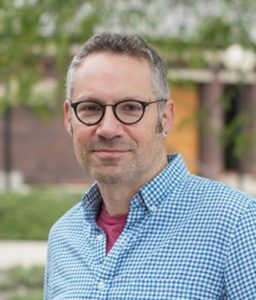 In the first week of the continuing semester at
In the first week of the continuing semester at  Smith College, Daniel Elihu Kramer’s directing students and Tara Franklin’s acting class met together, online. “Tara and I worked as actor and director on a monologue from John Kolvenbach’s Sister Play, which we’d done at Chester Theatre Company, as a model of how to work together — and how to do it over Zoom,” he said. “I was pleasantly surprised to find that it still felt like making work together, even in this strange circumstance.”
Smith College, Daniel Elihu Kramer’s directing students and Tara Franklin’s acting class met together, online. “Tara and I worked as actor and director on a monologue from John Kolvenbach’s Sister Play, which we’d done at Chester Theatre Company, as a model of how to work together — and how to do it over Zoom,” he said. “I was pleasantly surprised to find that it still felt like making work together, even in this strange circumstance.”
Kramer said he’s noticed that “whatever we’ve been able to do that’s positive grows out of the time we spent together in the classroom before we went away.” But, he added, “I won’t pretend that there aren’t also real losses here. So much of our work in theatre is about what we can create and offer in shared physical space. Still, we reach for the essence of the work in every way we can in our present circumstances, while looking ahead to a time we can come together again.”
Backstage
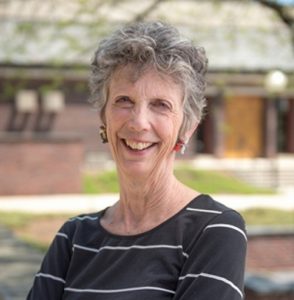 Instruction is usually just as hands-on in the technical and design aspects of theatermaking. Kiki Smith, who teaches costuming at Smith College, she told me her upcoming classes “are focused on the history of Western dress and fashion. Usually I have students try on theater versions of these clothes so they can translate what they see in a portrait into something tangible.” But now, on Zoom, “Maybe I will have to put on an Elizabethan farthingale or bum rolls myself, to show them how these shapes were made.” She’s preparing online lectures and slide presentations, “but they won’t begin to replace the pleasure of having real bodies in a room with me.”
Instruction is usually just as hands-on in the technical and design aspects of theatermaking. Kiki Smith, who teaches costuming at Smith College, she told me her upcoming classes “are focused on the history of Western dress and fashion. Usually I have students try on theater versions of these clothes so they can translate what they see in a portrait into something tangible.” But now, on Zoom, “Maybe I will have to put on an Elizabethan farthingale or bum rolls myself, to show them how these shapes were made.” She’s preparing online lectures and slide presentations, “but they won’t begin to replace the pleasure of having real bodies in a room with me.”
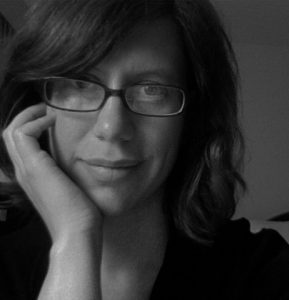 Amy Altadonna, teaching sound design and production at UMass, is engaging her students directly in planning and executing the classwork. “I’m asking them to share things from their own knowledge base. They’re all so intelligent, all so motivated, and I trust them. I’m putting it on them, and we’re all learning this together.” She’s also urging her students to “embrace this opportunity to practice the kind of remote collaboration that the entertainment industry demands more and more.”
Amy Altadonna, teaching sound design and production at UMass, is engaging her students directly in planning and executing the classwork. “I’m asking them to share things from their own knowledge base. They’re all so intelligent, all so motivated, and I trust them. I’m putting it on them, and we’re all learning this together.” She’s also urging her students to “embrace this opportunity to practice the kind of remote collaboration that the entertainment industry demands more and more.”
Cyberschool
As of this writing, public schools across the state are closed until at least May 4th, with little confidence they’ll reopen then. But that glimmer of hope has kept rehearsals for spring productions going in at least some area high schools.
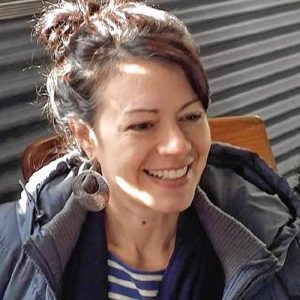 At the Pioneer Valley Performing Arts Charter
At the Pioneer Valley Performing Arts Charter 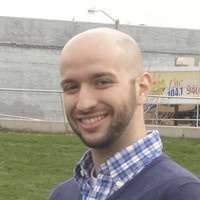 School, Jorge Rodríguez and Jennifer Onopa are hosting video conferences to rehearse their spring shows, Mr. Burns: A Post-Electric Play and Twelfth Night, Rodríguez told me. “The work we can do is mostly limited to character development, working on acting moments, table work and such. It’s been productive and it’s kept the work alive. Though we are all, of course, itching to get back to working in person.”
School, Jorge Rodríguez and Jennifer Onopa are hosting video conferences to rehearse their spring shows, Mr. Burns: A Post-Electric Play and Twelfth Night, Rodríguez told me. “The work we can do is mostly limited to character development, working on acting moments, table work and such. It’s been productive and it’s kept the work alive. Though we are all, of course, itching to get back to working in person.”
“Years of work on immersive theater” at Amherst Regional High School, John Bechtold said, “has offered us a language to make non-staged work in these non-stageable times.” 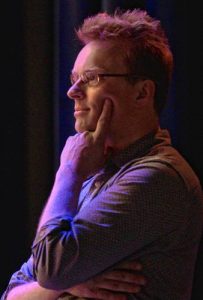 In a project called An Odyssey for One, pairs of students interview each other, then devise a solo piece to be performed, online, only for their partner — “a theatrical gift that slips into their everyday life.”
In a project called An Odyssey for One, pairs of students interview each other, then devise a solo piece to be performed, online, only for their partner — “a theatrical gift that slips into their everyday life.”
The school’s 35th annual Student-Written Play Festival of ten-minute and one-minute works is going forward. “If by some miracle we return, we’ll quickly put these plays on their feet for a production weekend. If not, we will perform them online for public access,” Bechtold said, adding that the current situation offers an opportunity to “make lemonade. Typically, plays not selected just disappear, but this year, we’ll follow up with online staged readings of all the remaining works.”
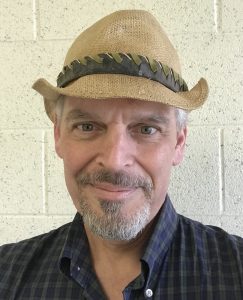 Stephen Eldredge has been pondering ways to save the spring productions at Northampton High School. He imagines the two student-directed shows might work in site-specific venues. Since Annie Baker’s The Aliens, directed by Melle Lowenthal, is set outside, “we might create a ‘distanced’ performance outdoors.” And with appropriate spacing safeguards, “we could stage Sara Grimaldi’s production of The Glass Menagerie in someone’s house and broadcast the video.”
Stephen Eldredge has been pondering ways to save the spring productions at Northampton High School. He imagines the two student-directed shows might work in site-specific venues. Since Annie Baker’s The Aliens, directed by Melle Lowenthal, is set outside, “we might create a ‘distanced’ performance outdoors.” And with appropriate spacing safeguards, “we could stage Sara Grimaldi’s production of The Glass Menagerie in someone’s house and broadcast the video.”
As for classwork, last week Eldredge emailed me: “Just held my first online acting class. Mayhem on Zoom! 22 kids on the screen! Nobody focused! Total weirdness!”
He added, “It just makes you really appreciate how wonderful a room full of people is, everyone responding to everyone at once, celebrating each other’s presence in magnificently subtle, unconscious ways. How dynamic, how fulfilling it is to share a space with each other. Damn, I miss it!”
Headline photo by Jon Crispin
John Bechtold photo by Jerrey Roberts
Will MacAdams photo by Susan Sermoneta
Chris Rohmann is at [email protected] and valleyadvocate.com/author/chris-rohmann

